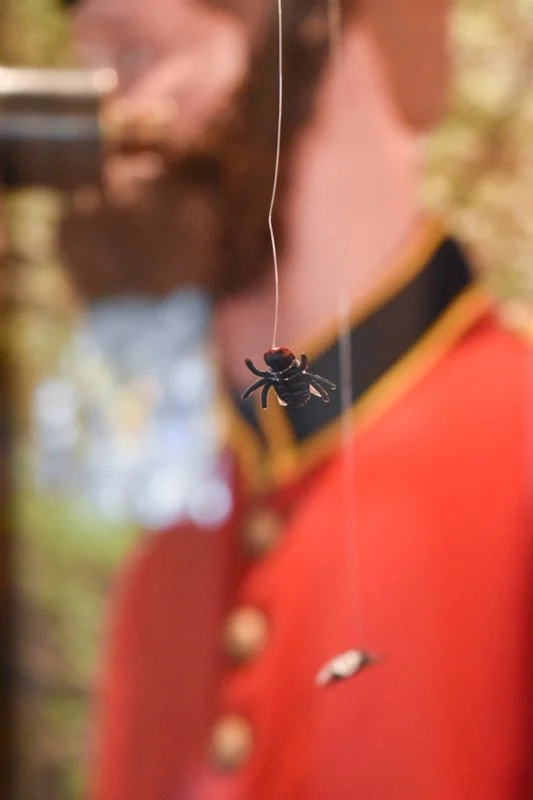Gold Rush Bug Remedies
As the population in BC grew during the gold rush, Royal Engineers were sent in to assist with order, survey the land, and construct roads and bridges. Along with the rough terrain and limited access to resources, a big problem they faced was the overabundance of mosquitos, flies, and other insects which were a source of constant aggravation throughout the spring and summer months. Both surveyors and miners fell victim to the thousands of mosquitos which would start appearing once spring hit.
A FLY IN FRONT OF THE ROYAL ENGINEER ON DISPLAY FOR COQUITLAM’S HEART OF GOLD
Smoky fires sometimes helped repel the insects, as well as taking care to cover up faces when sleeping. In a letter sent to his uncle, Royal Engineer Lieutenant Lampriére recounts smoking a cigar in his tent at night in order to keep out mosquitos and keep warm. The people living and travelling around BC soon began coming up with a variety of different bug remedies that they would employ to combat this issue. A popular one for the miners was something called “fly oil,” consisting of:
1 pint pine tar
1 ½ pints of olive or sweet oil
1 ounce citronella
½ ounce of carbolic acid
Other homemade repellents included a spray made from peppermint, citronella, lemongrass, lavender, and spearmint mixed with water, witch hazel, and alcohol. Some oral remedies involved eating and cooking with garlic which was thought to repel insects, or drinking a tablespoon of apple cider vinegar once a day.
The Indigenous population in BC had their own remedies for insects, like using root vegetables as either an ointment or as fuel for smoky fires. It was said that burning sage wart became so effective at repelling mosquitos that wild horses would gather in the smoky areas for relief. To this day, burning fuel to prevent insects is still practiced in many parts of the world.
Coquitlam’s Heart of Gold is on display at Mackin House until June 17, 2022. As you make your way through the exhibit, don’t forget to play the Spot the Fly game!


